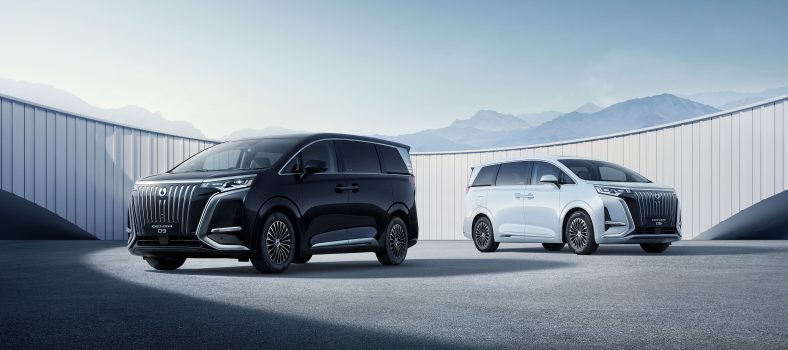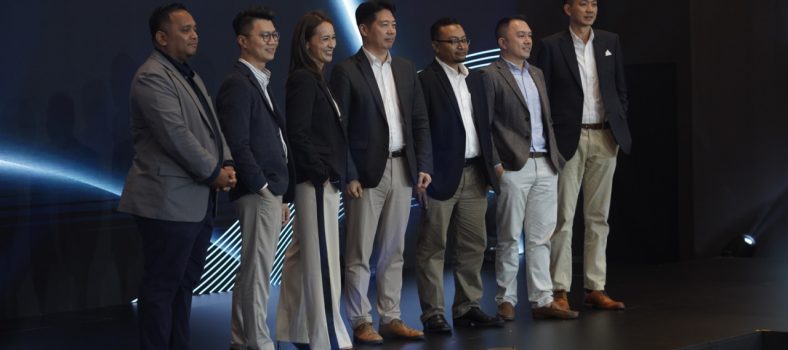Hyundai Membina Pusat Inovasi Mobiliti Di Singapura
ASEAN dilihat sebagai pasaran pertumbuhan yang berpotensi untuk banyak pengeluar kereta, tetapi sayangnya gergasi kereta Korea Selatan Hyundai Motor Group tidak akan sekali lagi melihat kepada kita untuk satu lagi pelaburan besar. Pada tahun lepas, kami dapat tahu bahawa jiran kami Indonesia akan menjadi tuan rumah kepada kilang 8.35 juta kaki persegi untuk Hyundai. Sekarang kita difahamkan bahawa Singapura akan menerima kemudahan kolar putih untuk R & D Hyundai. Ia dipanggil Hyundai Mobility Global Innovation Centre in Singapore (HMGICs).

Kemudahan itu juga akan menyediakan kemudahan pengeluaran pilot EV yang berskala kecil. Jadi, walaupun Dyson baru-baru ini keluar dari pengeluaran EV di sana, Singapura boleh dapat hadiah saguhati ini.

Berikut adalah beberapa fakta utama mengenai kemudahan yang akan datang ini:
- Tanah seluas 44,000 meter persegi
- Kawasan terbina seluas 28,000 meter persegi
- Pembinaan bermula pada 2020
- Dianggar siap pada S2 2022
Berikut adalah butiran hubungan Malaysia Automotive Robotics dan Institut IoT, yang sebahagian bertanggungjawab untuk mendapatkan pelbagai tawaran untuk negara kita:
info@marii.my
Siaran Media
Hyundai Motor Company will establish a Hyundai Mobility Global Innovation Center in Singapore (HMGICs) to accelerate its innovation efforts, with support from the Singapore Economic Development Board (EDB).
The new innovative lab will be located in Singapore’s Jurong Innovation District, a one-stop advanced manufacturing hub developed by JTC Corporation, housing a vibrant ecosystem of researchers, technology and training providers and factories of the future. HMGICs will occupy a footprint of 44,000 m2 with the building area of 28,000 m2. Construction will begin in May with completion expected in second half of 2022.
As an open innovation lab, HMGICs will help ensure the company’s transformation into a smart mobility solution provider and secure its sustainable growth. The lab will explore business ideas and technologies to revolutionize a value chain encompassing R&D, business and production for future mobility solutions. It also will help define the future business direction for the company.
HMGICs will become Hyundai’s global open innovation hub. The lab, through open innovation on multiple fronts, will explore and prove new future mobility business concepts for eventual expansion into global markets. Combining Hyundai’s open innovations efforts with Singapore’s fertile atmosphere, HMGICs will validate concepts including multi-modal mobility service.
The lab will also spearhead efforts to reach new markets and customers with cutting-edge technologies that will transform automotive R&D, production and sales. Combining AI, Internet of Things (IoT) and other advanced technologies, the lab will create a human-centered smart manufacturing platform that will be validated through a small pilot EV production facility. In conjunction with the platform, an innovative product development process and on-demand production system will be tested and proven.
Singapore ranked first place in the World Economic Forum’s 2019 Global Competitiveness Report. Singapore’s competitiveness stems from its strategic location, competitive workforce, pro-business environment, and forward-looking economic policies. With a strong track record for open innovation, Singapore is an ideal location for Hyundai to test its innovative ideas such as HMGICs.
As part of its Smart Nation initiative to drive the adoption of digital innovation across industries, Singapore is actively fostering the use of digital technologies such as AI, digitalization, and smart urban mobility.
Proving new mobility business opportunities through open innovation
Hyundai, through HMGICs, will work closely with Singapore’s forward-thinking firms and educational institutions to pursue open innovation.
The company plans to collaborate with competitive local partners to test and validate innovative solutions for advanced mobility services.
Hyundai also will pursue open innovation with world-class educational institutions such as the Nanyang Technological University by conducting joint projects as well as co-founding separate research centers.
HMGICs will facilitate collaboration opportunities by deploying key engineers and relevant organizations from Hyundai’s R&D centers. The lab also will be home to members of the Hyundai CRADLE innovation hub and AI Research (AIR) Lab to maximize synergies.
With Hyundai CRADLE’s presence in Singapore, the company will expand its global innovation network to Southeast Asia, with hubs already established in Korea, U.S., Israel, Germany and China.
The lab also will test a service using multiple modes of transport, as well as on-demand shuttle and last-mile mobility via e-scooter. In addition, Hyundai will review a potential collaboration on a pilot study for Singapore’s Smart City project.
HMGICs will expand new business opportunities proven in Singapore to global markets.
Hyundai to secure new markets and customers with revolutionary technologies
With HMGICs in place, Hyundai Motor will seek ways to implement smart technologies that will transform the automotive value chain including development, production and sales. Hyundai expects to secure new markets and customers through the effort.
HMGICs aims to establish a human-centered smart manufacturing platform and present a vision of next-generation manufacturing for future vehicles. The new platform will not only be highly automated but also integrate AI, Internet of Things (IOT), digitalization and robotics. When realized, Hyundai’s new manufacturing platform will help make automotive plants safer and greatly diminish the physical burden for workers, using manpower only where necessary.
As part of the project, HMGICs will establish a small-scale pilot EV production facility as a testbed for human-centered manufacturing platform. EV production is especially suitable for a smart manufacturing platform, because EVs have fewer parts compared to vehicles with internal combustion engines.
In addition, HMGICs will test an on-demand production system, allowing customers to build their vehicles with a wider range of customization options.
At HMGICs, Hyundai also aims to study new methods of vehicle development conducive to smart manufacturing while further increasing use of virtual reality (VR) technology in the vehicle development process.






No Comment